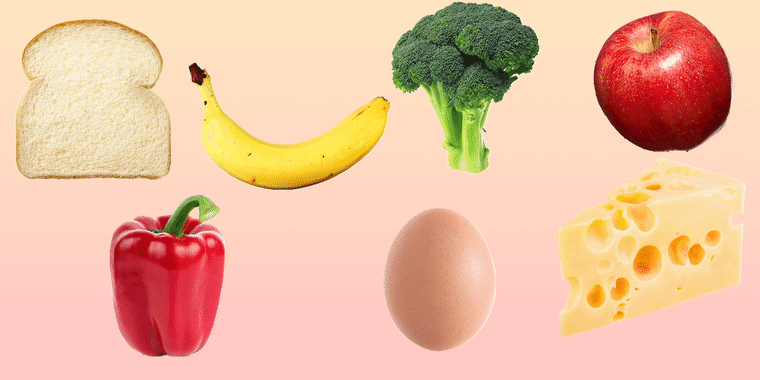Of all the wonderful things exercise does for your body, more evidence suggests losing weight isn’t one of them.
Your daily activity level has almost no bearing on the number of calories you burn and burning more energy doesn’t protect against getting fat, Herman Pontzer writes in his new book, “Burn: New Research Blows the Lid Off How We Really Burn Calories, Lose Weight, and Stay Healthy.”
“Your brain is very, very, very good at matching how many calories you eat and how many calories you burn,” Pontzer, an associate professor of evolutionary anthropology at Duke University, told TODAY.
“The person who has a sedentary lifestyle and the person who has the active lifestyle will burn the same number of calories.”
What? We’ve all been taught the more you move, the more energy you burn, helping with weight loss. But that’s the wrong view of the human body’s flexible metabolic engine, Pontzer says.
A person starting that new Peloton program, for example, and exercising like crazy will burn more calories at first, but her body will adjust over the course of a couple months and begin to spend less energy on its many other tasks, like inflammation and stress reaction, until things are back to the way they were, he noted.
How does Pontzer know? He studies the Hadza people of Tanzania, hunter-gatherers who walk for miles every day foraging for food. They’re incredibly physically active, moving more in a day than most Americans do in a week, so Pontzer and his colleagues were sure they’d be burning a crazy amount of calories. Yet when the researchers measured how much energy the Hadza burned, it turned out to be the same amount as sedentary urbanites in the West.
“That was a big surprise and a nice example of just how counterintuitive it can be,” Pontzer said. The results show our metabolic engines constantly adjust, making room for increased activity so that ultimately, daily energy expenditure is kept within a narrow window — whether you walk all day or don’t do much at all, he writes.
To lose weight, people are better off eating less than being more active, Pontzer noted. “Really the only strategy that seems to work well is to focus on your diet,” he said. “We've known for decades that exercise is a really poor tool for weight loss.”
Not everyone agrees. Programs that combine both diet and exercise result in a 20% greater weight loss compared to diet alone, said Deborah Riebe, a professor of exercise science and associate dean of the college of health sciences at the University of Rhode Island.
She recommends a combination of eating less along with getting adequate levels of exercise to maximize weight loss in people who are overweight or obese. Physical activity also appears to be a critical component to prevent weight regain, Riebe said.
Both diet and exercise are needed to slim down, added Maya Vadiveloo, an assistant professor in the department of nutrition and food sciences at the University of Rhode Island.
Still, many people wrongly believe obesity is entirely due to lack of exercise when the fact is “you cannot outrun a bad diet,” researchers wrote in an editorial in the British Journal of Sports Medicine.
Pontzer agreed, noting we’re surrounded by processed foods with added oils and sugars that are designed and focus-group tested to affect our brains in ways that are almost addictive.
Here are more findings from his book:
Don’t count on foods ‘boosting’ metabolism
Grapefruit, cayenne pepper, chili powder and green tea don’t boost your metabolism, and even things that do rev it a little bit, like coffee, have such a tiny effect that an extra bite of food would erase it, Pontzer said.
“The bigger question here is: Would a faster metabolism actually help you keep weight off? And there's no evidence for that,” he noted. “If you boost your metabolism a little bit, your brain will go, ‘Oh OK, we better eat little bit more’ and you wouldn't lose anything at all.”
To lose weight, find a diet that works for you
That means eating in a way that helps you feel full on fewer calories, but since our brains are wired so differently and we all have different backgrounds and love different foods, there’s no one diet that works for everybody, Pontzer said.
Staying away from ultra-processed foods found in the snack aisle, and instead focusing on protein and fiber are good ways to start.
A ‘Paleo’ diet looks different in the real world
The Hadza people of Tanzania studied by Pontzer offer a glimpse into how ancient humans may have eaten. They hunt for meat, and forage for tubers, berries and honey, which turns out to be a high-carb/low-fat diet. They get 65% of more of their calories from carbs while fat makes up less than 20%.
They have incredibly healthy hearts, don’t develop obesity and stay at the same weight their entire adult lives.
All diets work if you stick to them
That’s hard to do, of course. Modern foods are “too delicious” and designed to be overeaten, Pontzer writes. When not sure exactly how much to eat, humans have evolved to err on the side of eating more.
But whether you choose low-carb, low-fat, vegan, intermittent fasting, Paleo or Mediterranean, whichever diet allows you to eat fewer calories over the long-term will help you lose weight.
Keep exercising
Pontzer worries that people who are motivated only by weight loss will stop working out. But exercise is critical for making your body stronger and fitter, and for avoiding disease, so it’s important to stay active.
“If you want to keep your heart healthy, if you want to keep your mind sharp, if you want to be able to age into your 50s and 60s without kind of falling apart, then you really need exercise in your life and the more the better,” he said.




